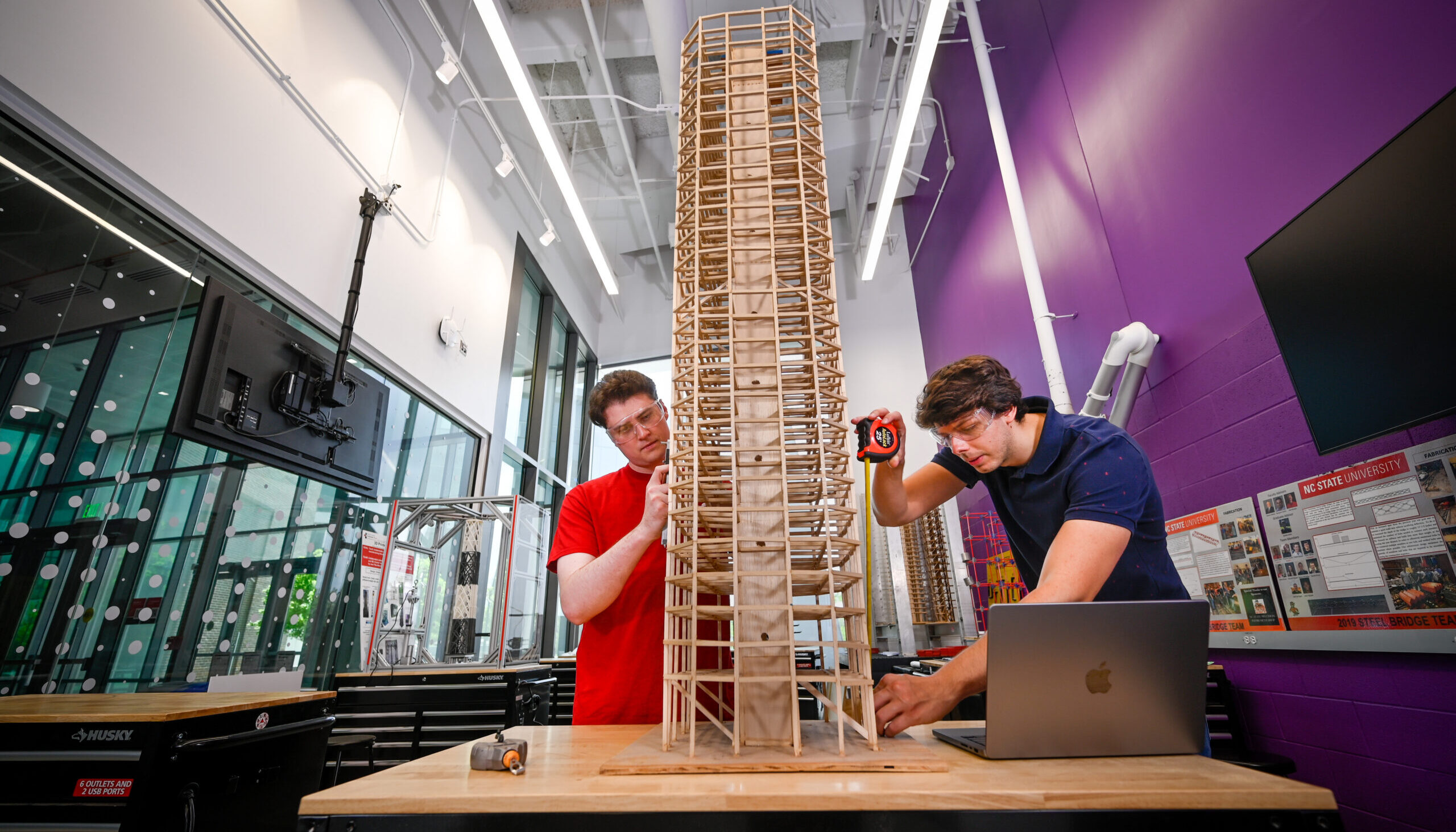Master of Civil Engineering

Program Overview
The Master of Civil Engineering (MCE) distance education program is designed for professionals with undergraduate degrees in civil engineering, environmental engineering, or construction engineering and management who wish to study geotechnical, structures and mechanics, transportation systems, and water resources. 30 credit hours. No thesis required. No GRE scores required.
Admission Requirements
Prerequisites for admission to the MCE degree include an undergraduate degree in civil engineering from an accredited institution or its equivalent with an overall GPA of 3.0. The Graduate Record Exam (GRE) is automatically waived for applicants who have an engineering degree from a US institution. The TOEFL or IELTS scores (no more than two years old) are required for international applicants unless they have completed one year of full-time study at a U.S. university. Enrollment in Engineering Online courses is contingent upon establishing and maintaining proper testing and proctoring mechanisms for each course. You must apply for admission to the MCE program online. When completing the online application, please be sure to select the “Distance Track” version of the degree.
Degree Requirements
- Completion of 30 credit hours of graduate-level courses at the 400, 500, or 700 level with an overall grade point average of 3.0. At least 24 hours must be at the 500 level or above and 400 level courses must be outside of civil engineering.
- Students are assigned an academic advisor and must work with this advisor to develop an individual Plan of Graduate Work. Some specialty areas have specific course requirements and these requirements must be met by both on-campus and distance students.
- Approximately two-thirds of all credit hours should be in civil engineering with an area of emphasis.
- The remaining credit hours can be civil engineering courses or related courses from other departments.
- No thesis or on-campus residency requirement.
- All requirements for the degree must be completed within six years of enrolling in the first course approved in the Plan of Graduate Work. Students must comply with the Graduate School regulations for continuous enrollment or must request a leave of absence not to exceed one year.
Course Registration
To register for an Engineering Online course, complete the registration form on the Engineering Online website. Students cannot register for Engineering Online courses through the University MyPack Portal system.
A person does not have to be admitted to a degree program to enroll in an online credit course. Prior to applying to Graduate School, a qualified individual may enroll in Engineering Online courses as a Non-Degree Studies (NDS) student. All course prerequisites must still be satisfied. The NDS classification is designed for individuals who wish to undertake academic work but who are not currently admitted to a degree program. If the student is admitted to the MCE program, a maximum of twelve NDS credit hours may apply toward the 30 credit hour requirement if the student earns a grade of B or higher in each course.
Course Offerings
A list of distance education courses available for each semester can be found on the Engineering Online website. Full-time employed individuals can only enroll in two online courses per semester. It is highly recommended that new students enroll in one online course during their first semester.
Course Logistics
Online courses are the same as on-campus courses in terms of content, requirements, and academic rigor. On-campus class lectures are captured, digitized, and placed on the Internet for distance students to access at any time and from any location. Students must, however, follow the on-campus class schedule in terms of submitting homework and taking exams. Course assignments, lecture notes, and handouts are made available to distance students on the course website. All in-class exams must be proctored.
Contact Information
- For more information about the MCE degree program available online, contact:
Dr. Ranji Ranjithan, Director of Graduate Programs
Jodie Gregoritsch, Graduate Services Coordinator
Department of Civil, Construction, and Environmental Engineering
Telephone: 919.515.7344
Email: ccee_grad_office@ncsu.edu
Department website: https://www.ccee.ncsu.edu/
Inquiries: CCEE Graduate Program Contact - For more information about the registration process, course offerings, and course logistics, contact:
Dr. Linda Krute, Director of Distance Education Programs
College of Engineering
Telephone: 919.515.5440
Email: linda_krute@ncsu.edu
Engineering Online website: https://www.engineeringonline.ncsu.edu